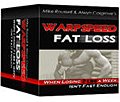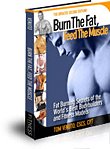Trying to get back into shape after having a baby can be very difficult. Pregnancy changes your metabolism so that you put on weight very efficiently, and makes it hard to get that weight back off. Naturally, you want to find the quickest way to lose fat, but you want to make sure it's also healthy for you and the baby. There are far too many unhealthy fad diets and exercise routines out there. Your health is what matters most.
The best program I've seen to lose stubborn belly fat is one that's been developed by Holly Rigsby, a certified personal trainer and a mom herself, so she knows what it's like to try to get rid of baby fat. It's called the Fit Yummy Mummy Lifestyle System. No unhealthy dieting or strenuous activity, just highly focused, incredibly effective exercises to get your metabolism back on track and get rid of belly fat fast.
New moms don't have a lot of spare time to spend on exercises to lose belly fat. The Fit Yummy Mummy Lifestyle System only takes a total of 90 minutes a week! All while spending less time and effort staying in shape because the exercises are so targeted and effective. Just take a look at the testimonials. Moms and fitness experts agree, this system is incredibly easy and it works brilliantly.
Holly will show you the best way to lose belly fat and see results fast. It's like having your own personal trainer, but at a fraction of the cost. If you want to get back in shape, or even get in better shape than you've ever been, you owe it to yourself to give the Fit Yummy Mummy Lifestyle System. It comes with an eight week, 100% money back guarantee, so there's no risk. Give it a try, and lose that baby fat in no time.









Post a Comment